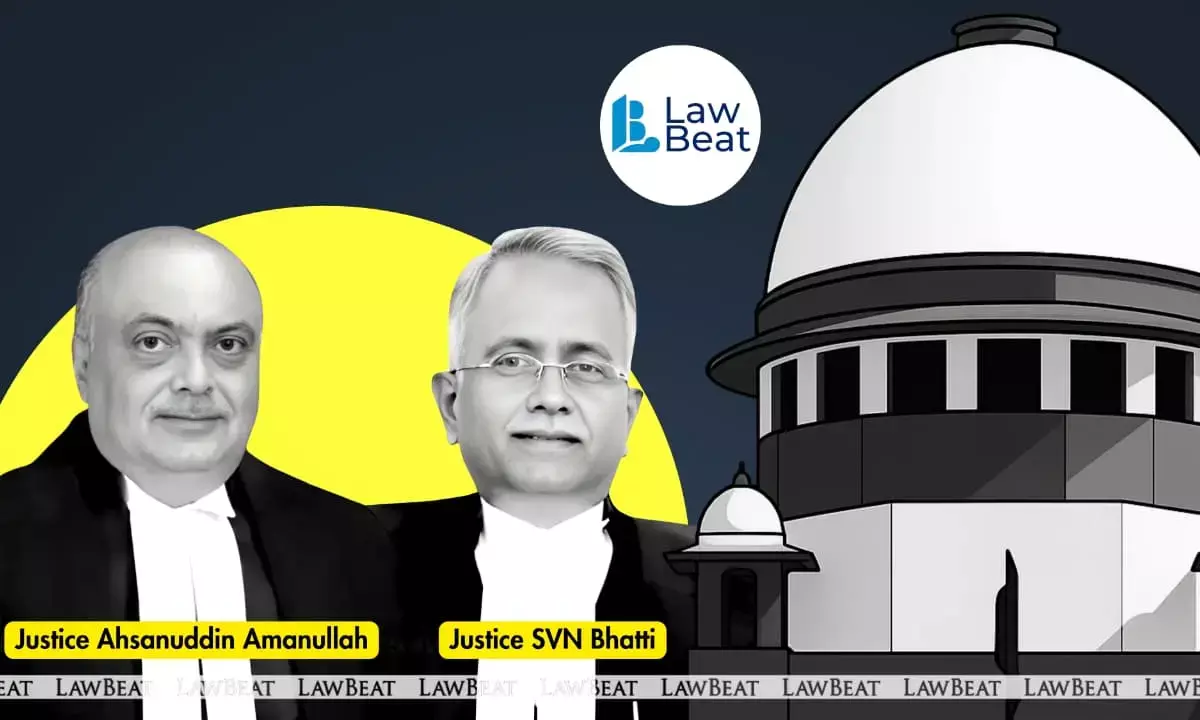No Shortcut in Summary Suit, Cannot File Defence Without Court’s Permission: Supreme Court

The Supreme Court clarifies that a defense in a summary suit must have prior leave, upholding the Order XXXVII procedural law
The Supreme Court has held that if a reply or defence is allowed to come on record in a summary suit without the leave of the court, then the crucial distinction between a suit instituted normally and one filed under Order XXXVII of the CPC fundamentally "stands effaced".
A bench of Justices Ahsanuddin Amanullah and S V N Bhatti set aside the Bombay High Court's order dated December 5, 2023, for bypassing the mandatory requirement specified in sub-Rules (4) and (5) of Rule 3 of Order XXXVII of the CPC. The bench observed, "The procedural deviation goes to the root of the matter. Hence, the order impugned is set asid".
A commercial summary suit was filed before the high court by the appellant, Executive Trading Company Private Limited, seeking to recover an alleged admitted and confirmed total liability of Rs 2,15,54,383.50 along with interest at 24% per annum, amounting to Rs 2,38,50,845.00. After the defendant, Grow Well Mercantile Private Limited, entered an appearance on summons, the plaintiff contended that the defendant ought to have filed for leave to defend by disclosing the available defence against the claim in the summary suit, if so advised.
Court noted that instead of seeking leave to defend, the defendant filed an application for the dismissal of the suit for non-compliance with Section 12A of the Commercial Courts Act. This application was allowed on April 08, 2022, the parties were referred to mediation, and the summary suit was kept in abeyance.
Following the submission of the mediator’s report, the plaintiff moved an application to amend the plaint and file a summons for judgment, which was permitted by an order on August 29, 2023. Subsequently, the defendant filed an application on January 23, 2024, seeking condonation of delay in applying for leave to defend, which remained pending.
The core issue before the apex court was the plaintiff's contention that the step ordered by the high court, which allowed a reply to the summons for judgment, was procedurally incorrect and unsustainable. The bench specifically examined the question of whether the court could have permitted the filing of a reply or defence without the defendant even praying for leave and setting out the available defence.
The defendant’s counsel argued that the application seeking condonation of delay was pending and that even if the application was filed under a wrong provision, it was not a ground to assume the plaintiff was entitled to a decree. Counsel further argued that the delay stated by the plaintiff in filing the application was factually incorrect, as it was always available to the defendant to convince the court to either grant leave or condone the delay.
To appreciate the procedural objection pointed out by the plaintiff, the bench enumerated the sequence of steps under Order XXXVII Rule 3 sub-Rules (1) to (7) of the CPC as follows:
* On filing the summary suit, the plaintiff must serve the defendant with the plaint and annexures, together with the summons.
* The defendant has ten days to enter an appearance, in person or through a pleader, and provide a service address. On the same day, the defendant must notify the plaintiff or its pleader of its appearance.
* The plaintiff then serves a summons for judgment on the defendant in the court-prescribed format, supported by an affidavit verifying the cause of action, the amount claimed, and the belief that the defendant has no defence.
* Thereafter, the defendant has ten days to apply for leave to defend by filing an affidavit disclosing a genuine and substantial defence. The court may grant leave to defend unconditionally or on such terms that may appear to be just.
* The court shall not refuse leave unless the defence is frivolous or vexatious. Further, if the defendant admits to owing part of the amount, it must deposit that amount in court to get the leave to defend.
* If the defendant does not apply for leave or its application seeking leave is refused, the plaintiff is entitled to immediate judgment. If the court grants leave to defend but the defendant fails to comply with any condition or other directions, the plaintiff is also entitled to immediate judgment.
* The court has the discretion to condone any delay in entering an appearance or applying for leave to defend if the defendant shows sufficient cause.
Case Title: Executive Trading Company Private Limited Vs Grow Well Mercantile Private Limited
Judgment Date: September 25, 2025
Bench: Justices Ahsanuddin Amanullah and S V N Bhatti
